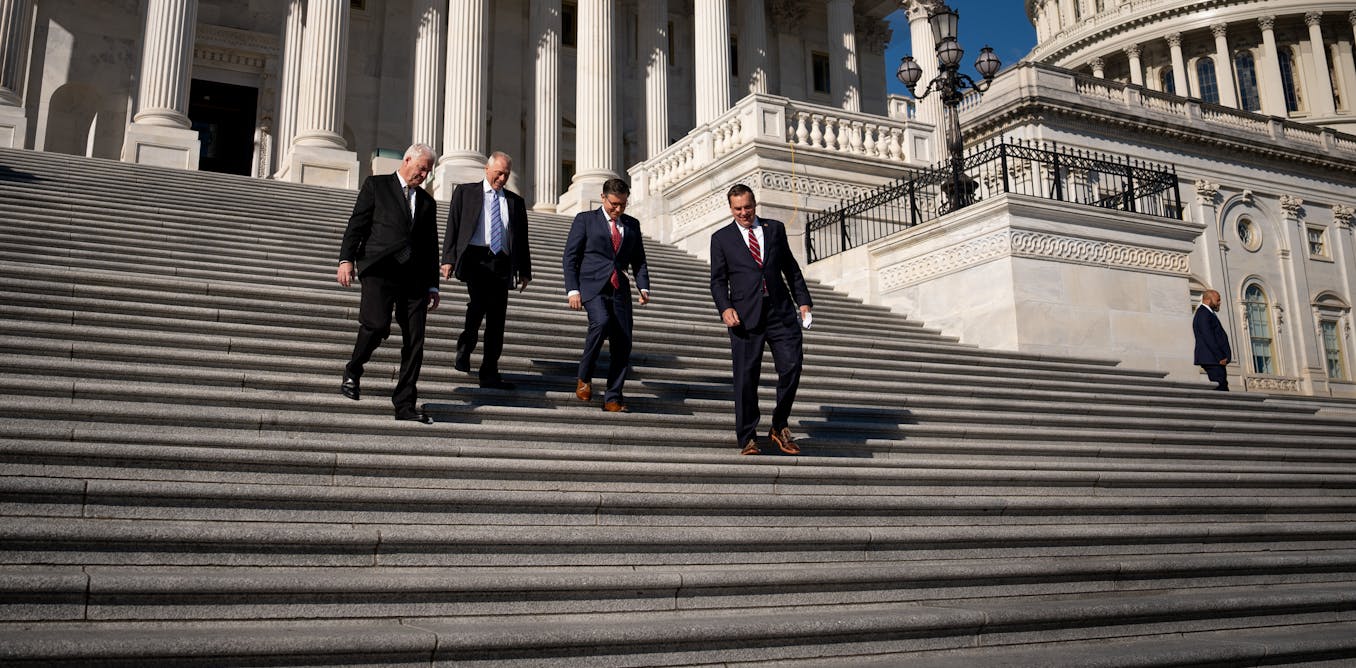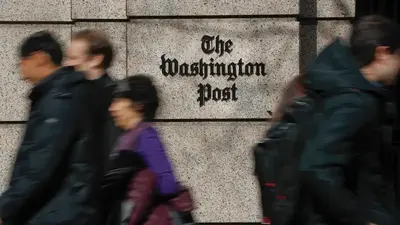Business
Hungary's Orban calls US a 'friend' despite sanction on bank
BUDAPEST, Hungary -- Hungary's prime minister sought to bring down the temperature on spiraling tensions between his government and the United States, declaring Friday that the U.S. is Hungary's “friend” despite sanctions Washington imposed on a Budapest-based Russian bank.
In an interview on state radio, Prime Minister Viktor Orban said that the International Investment Bank, a Russian-controlled financial institution which U.S. officials have argued could serve as a conduit for Russian espionage, “could have played a serious role in developing Central European economies.”
While the war in Ukraine had limited the bank's effectiveness, Orban said, the U.S. sanctions against IIB and three of its top officials had “ruined it.” The Hungarian government withdrew its membership in the bank Thursday, the day after the sanctions were issued.
“(The bank's) operations have been rendered impossible. It can't serve its function,” Orban said. “We decided that under these circumstances, Hungary's participation in the bank's further work has become pointless.”
The sanctions — a broader package targeting the financial networks of two of Moscow’s wealthiest Businessmen but also, in the case of Hungary, a rare step aimed at a NATO ally — brought rising tensions between Budapest and Washington to a head.
U.S. officials have grown increasingly dissatisfied with Hungary's approach to the war in Ukraine, criticism of war-related sanctions on Russia and continuing close ties with Moscow, which have given Orban a reputation as the Kremlin's closest ally in the European Union.
Increasing anti-American rhetoric in Hungary's government-tied media and assertions from senior Hungarian officials that Washington seeks to force Hungary into the war have added fuel to the fire, bringing diplomatic relations to their lowest point in years.
But Orban appeared to want to pump the brakes on the deteriorating relations, emphasizing the U.S.'s status as Hungary's NATO ally and one of its most important trading partners.
“We have good relations with the Americans,” he said. “The United States is our friend and an important ally as well.”
“We've never agreed with the sanctions (against Russia,)” the populist prime minister continued, "but we don't dispute anyone's right, including that of the United States, to impose sanctions if they see fit."
Orban's conciliatory remarks followed actions by Hungary that escalated its disputes with Washington. Those include sending its foreign minister to Moscow for energy talks on Tuesday and receiving the Moscow-allied Belarusian foreign minister in Budapest on Wednesday, said Daniel Hegedus, an analyst and Central Europe fellow for the German Marshall Fund.
But the Hungarian government's reaction to the U.S. sanctions has been “surprisingly accommodating,” Hegedus told The Associated Press, signaling that Orban was willing to make concessions in order to preserve a relationship with its largest ally.
“This was a message from the Hungarian government that, ‘Yes, we are responsive and we are ready in some way to settle this relationship,’” Hegedus said.
Hungary's president, Katalin Novak, also indicated Friday that Hungary would forego escalating tensions over the U.S. sanctions, writing on Twitter that “I welcome the decision of the Hungarian government to withdraw its representatives from the International Investment Bank.”
“In the shadow of war in Ukraine, the bank’s operation had lost its meaning; steps are needed to bring us closer to peace,” Novak wrote.
Despite opposition from U.S. and European officials, Orban’s government continues to lobby against EU sanctions on Russia, pursue energy deals with Moscow and to refrain from sending weapons to Ukraine.
Hegedus, the analyst, said that while he doesn't expect “a fundamental U-turn” in Hungary's Russia policy in the near future, the U.S. sanctions on the bank proved that Hungary's government “is responsive to pressure.”
“When it faces significant leverage from a partner, then it reacts," he said.
___
Follow AP's coverage of the war in Ukraine: https://apnews.com/hub/russia-ukraine-war
-

 Business18h ago
Business18h agoUS House passes measure that could punish nonprofits Treasury Department decides are ‘terrorist’
-

 Business18h ago
Business18h agoFast fashion may seem cheap, but it’s taking a costly toll on the planet − and on millions of young customers
-

 Business1d ago
Business1d agoNew Information: These HV Big Lots Are Now Staying Open
-

 Business1d ago
Business1d agoBrush Fire Rages On Near Butternut In Great Barrington, MA
-

 Business2d ago
Business2d agoU.S. Antitrust Regulators Seek to Break Up Google, Force Sale of Chrome Browser
-

 Business2d ago
Business2d agoSuccessful White Men Alone Can’t Create America’s Economic Future
-

 Business2d ago
Business2d agoThe Rise of Silent Services
-

 Business2d ago
Business2d agoTim Latimer



























